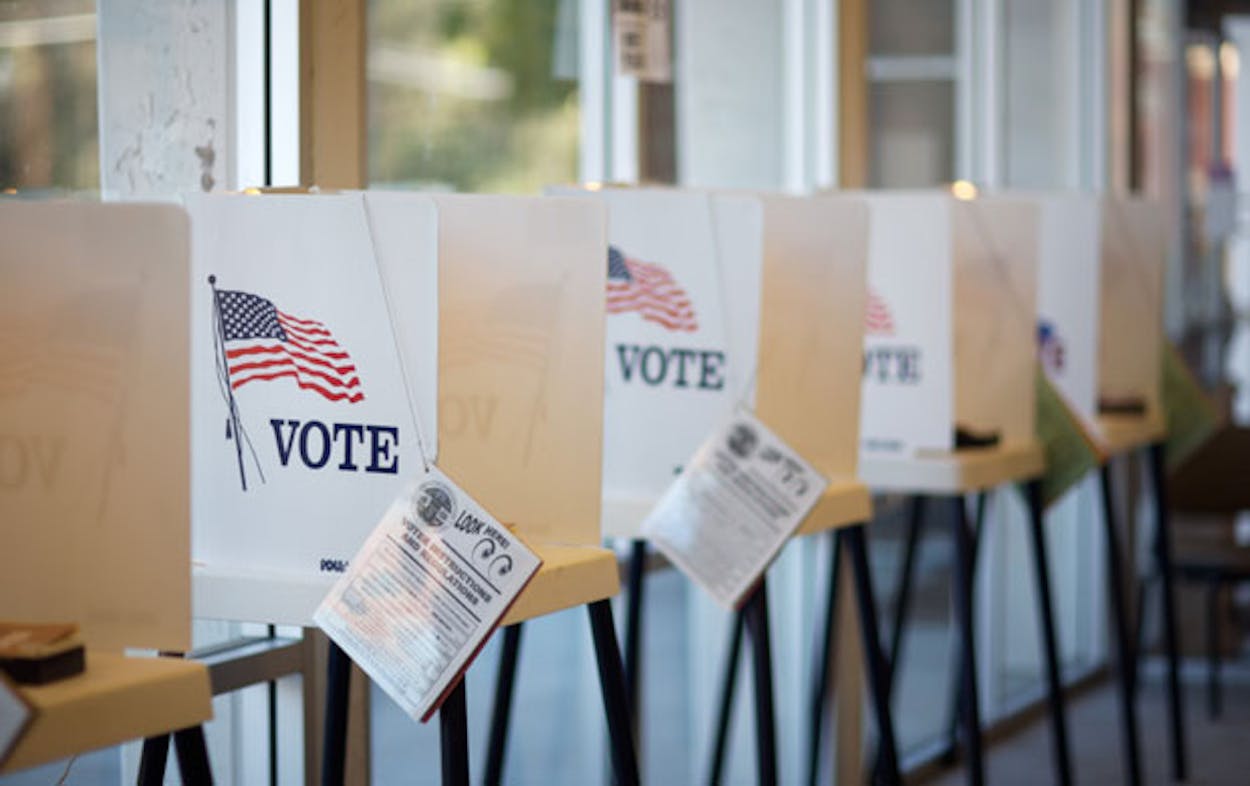Today is Election Day, though you might not have noticed. Typical for odd-numbered years, it’s been a quiet election season, and the turnout will surely reflect that. Just 33.70 percent of Texas’s registered voters participated in last year’s general election, and that number will surely be even lower this year, since the statewide ballot consists solely of proposed constitutional amendments.
Still, the propositions in question will have real implications for the people of Texas, including some of our state’s most vulnerable residents. Millions of Texans must decide some fairly significant local elections. Houstonians will elect a new mayor, and weigh in on the Houston Equal Rights Ordinance; my home district in the Texas House, HD 121, is going to decide on a replacement for the outgoing Joe Farias. And if you were among the Texans who was surprised and dismayed by the indictment of Attorney General Ken Paxton, just months after he was sworn in as the state’s top law enforcement official—well, at the risk of being a scold, you really have no one to blame but yourself for that, but perhaps you can look at this year’s elections as a shot at redemption.
The Secretary of State’s office has the information you need about where and how to vote, as well as a preview of what you’ll see on the ballot. If you’re in a last-minute civic scramble, here’s a quick crib sheet about what to do once you get in the booth. The most consequential of the seven propositions are No. 1 and No. 7.
Proposition 1 proposes to raise the homestead exemption from $15,000 to $25,000 for local school district taxes. This would save the average homeowner a couple hundred dollars a year on their property taxes, but it comes with a heavy cost: The state is constitutionally obligated to pony up. Covering the school districts’ lost revenue will cost about $1.3 billion in the next two fiscal years, if this thing passes, and every biennium thereafter. Since the Lege is seemingly disinclined to raise taxes or otherwise expand extant revenue collections, this money will have to be found elsewhere in the state’s notoriously lean budget. I pay property taxes in Travis County, but I’ll be voting no on Proposition 1, possibly with enough force to break the machine.
Proposition 7 proposes to guarantee more funding for transportation, largely by dedicating a portion of the motor vehicle sales tax to the highway fund rather than to general revenue; Aman Batheja explains it in full detail at the Texas Tribune. I’m voting yes on this one. Even the most conservative among us, I think, would agree that infrastructure is a core function of government, and I can’t speak for everyone, but I’ve spent many hours sitting in traffic contemplating Texas’s dramatic economic and population growth since the beginning of the century.
As for the others, your vote may hinge on whether you’d like to see the Lege take an ambitious approach to policy-making during its brief and madcap sessions. If so, you might want to cast a protest vote against something like Prop 6, which calls for a constitutional amendment recognizing that Texans have the right to hunt and fish, but might be described as a solution looking for a problem, while actual problems went neglected by our representatives. My own feeling is that legislators, like officials, should first do no harm, and voting yes on Props 2, 3, 4, 5, and 6 is a way to provide them with some positive reinforcement.







